
BCMA-targeting ADC belantamab mafodotin was approved for use in patients with relapsed/refractory multiple myeloma after 2 or more lines of treatment.

BCMA-targeting ADC belantamab mafodotin was approved for use in patients with relapsed/refractory multiple myeloma after 2 or more lines of treatment.

Frontline lenvatinib, pembrolizumab, and chemotherapy did not lead to increased overall survival vs chemoimmunotherapy in patients with advanced ESCC.

T-DXd plus pertuzumab improved progression-free survival vs THP regardless of prior therapy, hormone receptor status, or PIK3CA mutations.

The combination of sacituzumab with pembrolizumab did not lead to a decline in physical functioning or quality of life in patients with metastatic TNBC.

Buparlisib combined with paclitaxel failed to improve overall survival vs paclitaxel alone for patients with PD-1/PD-L1–pretreated HNSCC.

Data from a large prospective study identified male and older patients as being more likely to develop CIP and 34% of cases to become chronic.
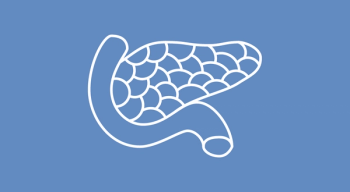
Adding zabilugene almadenorepvec to SOC chemotherapy and nab-paclitaxel was safe and effective in patients with metastatic pancreatic ductal adenocarcinoma.

Ivonescimab plus chemotherapy improved progression-free survival and response rates with manageable safety vs tislelizumab in advanced squamous NSCLC.

The DESTINY-Breast11 trial found neoadjuvant T-DXd followed by THP improved pathologic complete response vs ddAC-THP in high-risk, HER2-positive early breast cancer.
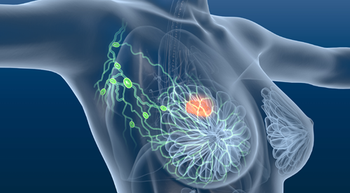
Long-term NATALEE data show adjuvant ribociclib plus an aromatase inhibitor (AI) improves invasive disease–free survival vs AI alone in HR+, HER2– early breast cancer.

Adding perioperative durvalumab to neoadjuvant chemotherapy did not worsen health-related quality of life for patients with muscle-invasive bladder cancer.

A preliminary analysis of a prospective study of patients with solid tumors identified subgroups at risk of depressive symptoms via patient-report outcomes.

Ponsegromab increased body weight in patients with cancer-associated cachexia, yielding greater improvement in those who received ponsegromab previously.
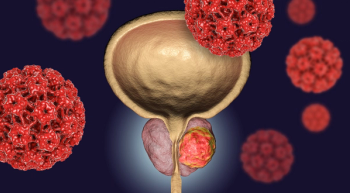
Patient-reported outcomes showed that health-related QOL stayed at baseline for patients with HRRM-positive mHSPC receiving a niraparib regimen.

Chemo-induced myelosuppression can affect patients’ ability to do daily tasks, and management varies by patient, treatment regimens, locations, and more.
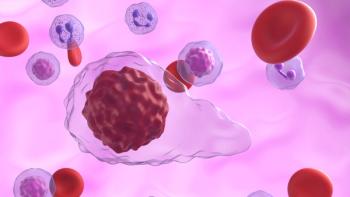
The addition of navtemadlin to ruxolitinib for patients with myelofibrosis who are JAK inhibitor-naive with suboptimal response to ruxolitinib will be evaluated in the phase 3 POIESIS trial.

On this episode of Onc Nurse On Call, Kristin Daly, MSN, ANP-BC, AOCNP, discusses practical cancer care strategies in the age of immunotherapy.
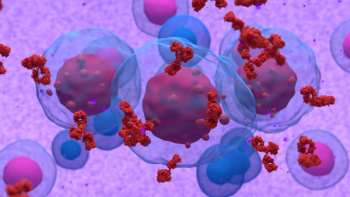
A 1-time dose of arlo-cel demonstrated safety and efficacy in patients with relapsed or refractory multiple myeloma that was previously treated.

Learn the critical factors in determining prophylaxis for venous thromboembolism, a frequent and serious complication for patients with cancer.

Following imlunestrant’s approval, Komal Jhaveri, MD, FACP, compares the oral SERD to its counterpart, elacestrant, in terms of composition and trials.

AI-driven decision support can ease oncologists’ workloads and streamline care without reducing autonomy.

The FDA has granted approval to adjuvant cemiplimab treatment for patients with high-risk cutaneous squamous cell carcinoma after surgery and radiation.

CRS and ICANS were observed in 48% and 16%, respectively, of patients with ES-SCLC who received tarlatamab, according to real-world data.

A network to connect patients with unused medications with patients in need brought $18 million of free cancer medication while reducing drug waste.

In the phase 3 SURPASS-ET trial, ropeginterferon alfa-2b outperformed anagrelide as second-line therapy for high-risk essential thrombocythemia.
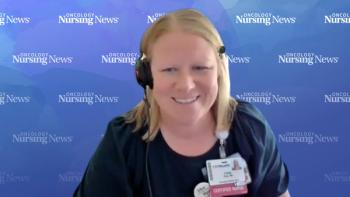
Cassie A. Gray, MS, RN, OCN, CHPN, explains how early palliative care integration benefits patients with advanced cancer.

Heather J. Jackson, PhD, APRN, FNP-BC, NEA-BC, FAA-NP, shared a review of supportive oncology practices at the 2025 School of Nursing Oncology.

The FDA has approved lurbinectedin plus atezolizumab for the treatment of extensive-stage small cell lung cancer following induction therapy with atezolizumab.
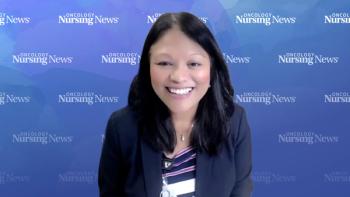
Jeneth Aquino, DNP, FNP-BC, explains that using ctDNA to guide a patient’s next steps can provide clarity in the treatment process.

The addition of atezolizumab to chemoradiation led to meaningful improvements to quality of life for patients with small cell lung cancer.